NEENAH, Wis. — You may recognize Native American musician Bill Miller’s flute playing from Walt Disney Animation Studios' "Pocahontas."
After all. the iconic song "Colors of the Wind" won a Grammy award.
Miller was born in Neenah, Wis. and lived there until the sixth grade. He recently made an emotional return home to help dedicate a sign project that recognizes the history of indigenous people along Lake Winnebago.
“I used to fish here as a kid,” said Miller.
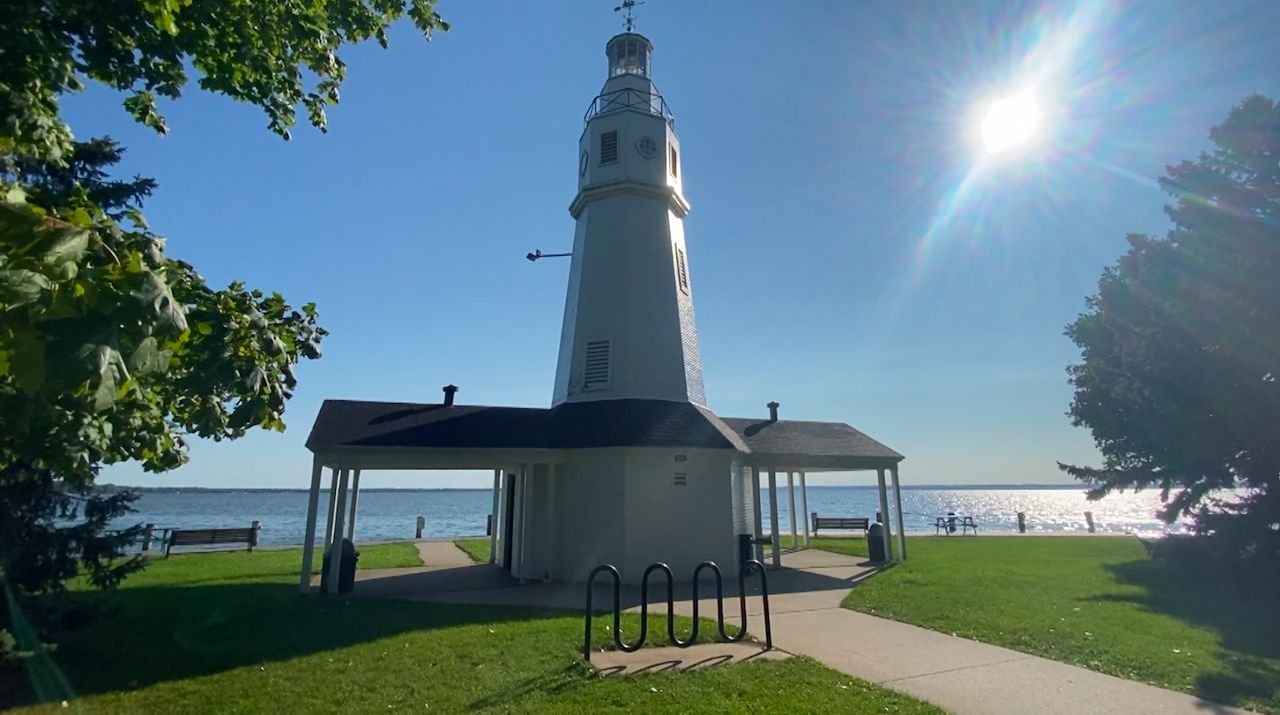
The sign project along Lakeshore Avenue includes three interactive historical displays. For Miller, it was his first visit back to the shoreline and lighthouse in a long time.
“My dad used to have recollections as a veteran from the Korean War,” said Miller. “He’d sit down here and break down. I had a lot of friends come back from Vietnam and we used to come over here. They did the same thing. It’s a powerful lake.”
Miller brought a number of wooden flutes to play at the sign dedication. He was nervous about the strong wind coming off the lake.
Dark clouds were forming in the south as he walked along the shore view one of the new signs.
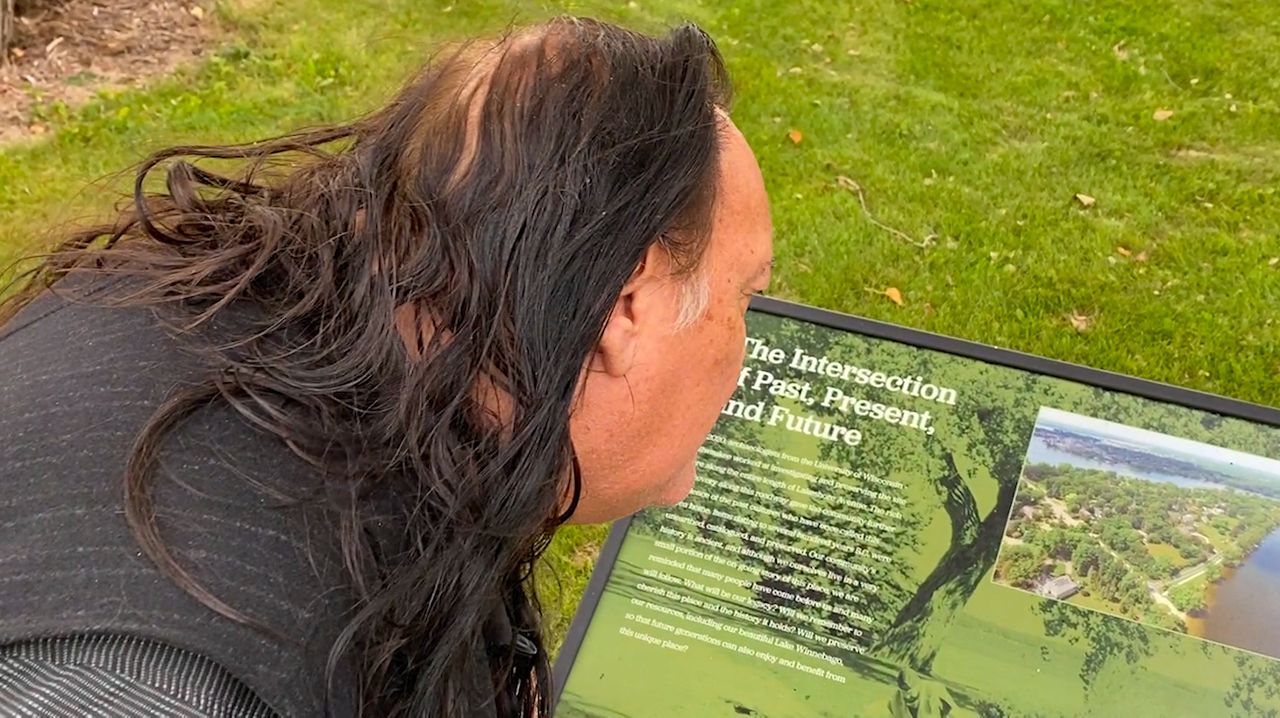
“It was so rough to be here then, to watch them break down about the war,” said Miller. "But this is a healing place. These are healing waters.”
In 2020 the ity of Neenah was rebuilding Lakeshore Avenue. During an archeological investigation before construction, Native American artifacts were uncovered.
“What was discovered is amazing,” said Jane Lang, Neenah Historical Society executive director.
Remnants of a vibrant indigenous population were extracted by a team from UW-Milwaukee.
“I think it’s important for us to recognize that history,” said Lang. “We’re not the first people here and we won’t be the last.”
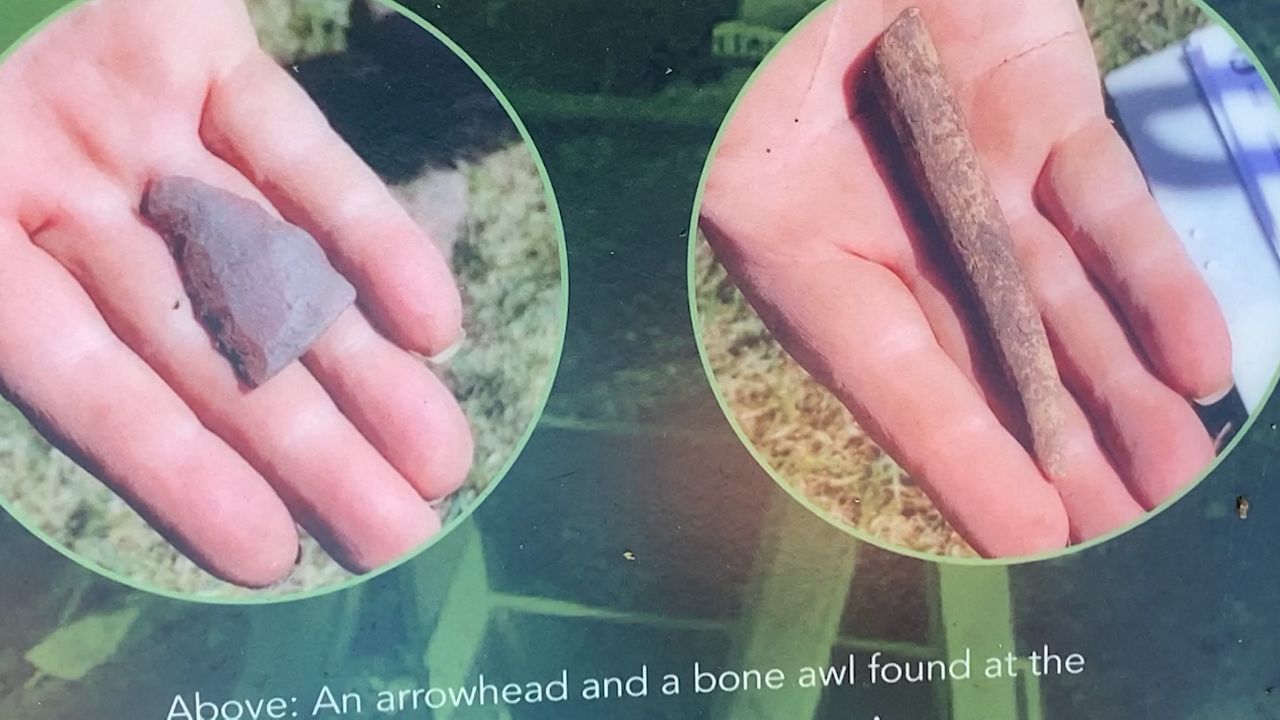
With dark clouds looming overhead, Lang spoke to the crowd that gathered for the ceremony.
“The three signs that were created have three themes,” said Lang. “Each sign contains information regarding those topics and also contains a link, a QRC that will take you to additional information in the form of audio files.”
Miller’s music is embedded in one of the QR codes.
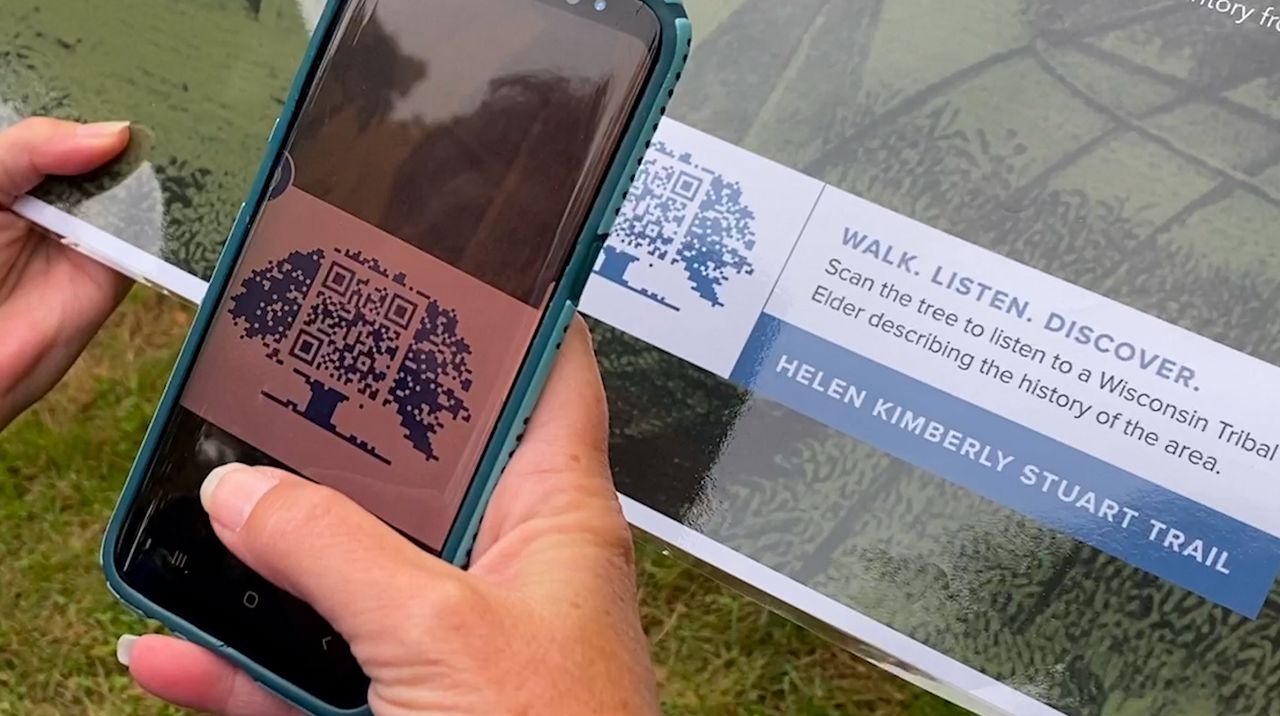
“I put the flutes, the soundtrack in there and it will be there for the rest of time,” said Miller. “I think that’s so cool. It’s like a dream. It’s better than the movie soundtrack.”
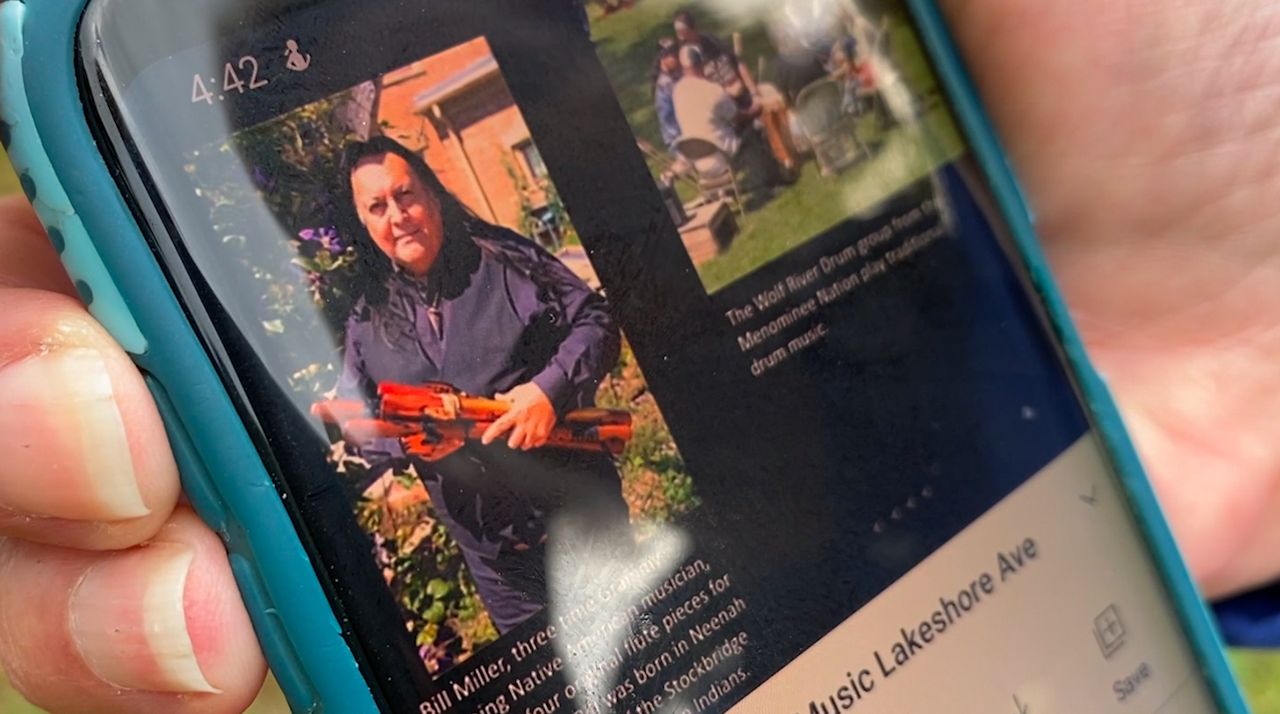
Miller appreciated the signs and recognition given to native people. He also wants to look forward.
“We should be recognized,” said Miller. “There are 11 tribes here. For us to be incorporated with these sacred sights and historical markers is fine with me but they also need to realize, we’re human beings. We still live. We still have lives. We have children. We have careers.”
After Lang and Neenah’s mayor Dean Kauffman spoke, it was time for Miller to address the crowd.
It was also the moment the sky opened up and heavy rain started to fall. Organizers debated whether to wait it out or press on. Miller, despite knowing the strong wind would affect his flutes, agreed to continue.
He offered a blessing to the project in the form of singing.
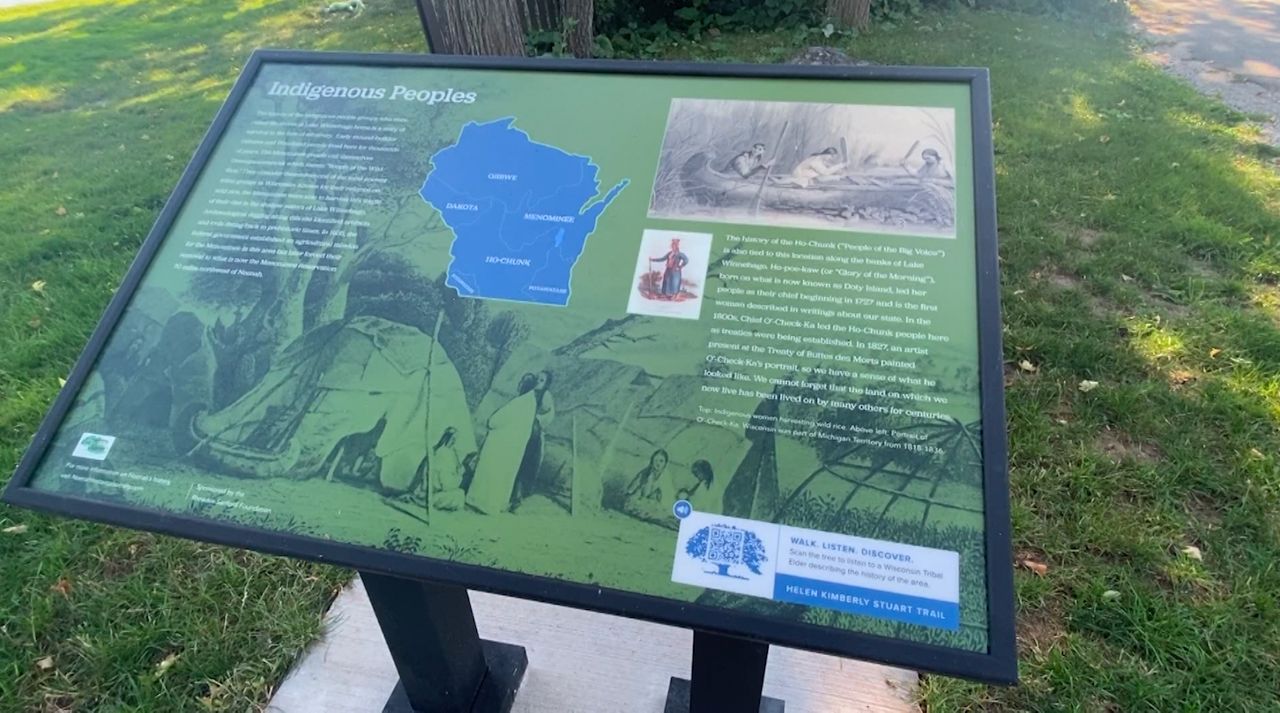
“[...] I praise you Lake Winnebago for the visions and the dreams...”
Miller then spoke to the crowd and revealed some recent personal difficulties.
“We’re all going through things in this [COVID-19] time,” said Miller. “I’ve lost six friends of mine. I lost a daughter, June 13. It has been a terrible time for me. But here we are in the rain. That’s what water means. It’s healing.”
Miller was then overtaken by the moment and briefly broke down.
“I’m a man of 66 years old. I can still cry. A lot of men can’t do what I do. Be blessed by this project,” said Miller. “I hope to someday come back here and walk it with my children.”
Miller then battled the wind. He played his flute for the rain-soaked crowd. After the music, the crowd dispersed and Miller packed up to leave Neenah once again.
“I still belong here,” Miller said. “I love it and I’m glad to come back.”



